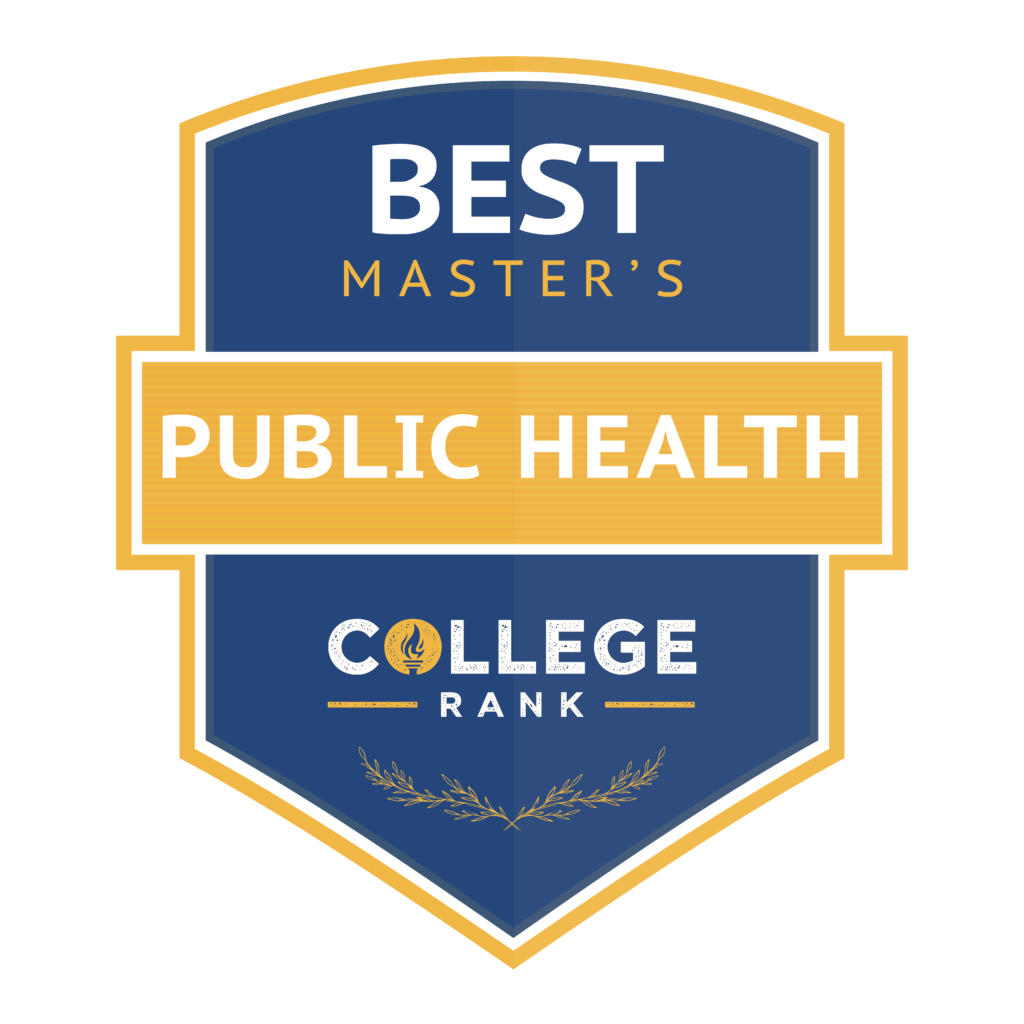Quick Highlights:
- Our #1 ranked school for a master’s in public health is Emory University, followed by Columbia University.
- The best MPH programs have strong connections to health agencies, diverse specializations, and hands-on learning opportunities.
- Public health professionals are in demand according to the Bureau of Labor Statistics. Jobs for community health workers and epidemiologists are expected to grow by 17% and 30%, respectively.
If the COVID-19 pandemic has taught us anything, it’s that public health fascinating. No wonder there has been an explosion of interest in master of public health degrees, also known as MPH degrees.
A graduate degree in public health management is right up your alley if you are interested in:
- the American Health Care System
- Community Health Issues
- Social and Behavioral Sciences
- various other areas of Public Health
A top MPH program can lead to a rewarding career of improving the lives of others.
In this article, we take a closer look at the 20 best universities at which to earn a master’s of public health degree. We’ve also answered some of the most frequently asked questions about MPH degrees at the end of the article.
Related (Campus):
Related (Online):
Methodology
To determine the best master’s degrees in public health, we put together a list of every university offering a Master of Public Health degree accredited by the Council on Education for Public Health (CEPH). To determine our top 20 rankings, we used the following points-based system:
Annual Out-of-State Graduate Tuition:
Under $20,000: 5 points
Under $30,000: 4 points
Under $40,000: 3 points
Under $50,000: 2 points
Under $60,000: 1 point
Annual Percentage of 20-Year Net Return on Investment (ROI):
9% and above: 5 points
7%-8%: 4 points
5%-6%: 3 points
3%-4%: 2 points
1%-2%: 1 point
Student-to-Faculty Ratio:
10:1 and better: 5 points
12:1 and better: 4 points
15:1 and better: 3 points
17:1 and better: 2 points
20:1 and better: 1 point
In the event of a tie in points, the higher ranking was awarded to the university with the lowest annual tuition for out-of-state graduate students. All tuition numbers are accurate as of February 2022.
Related: Best Online Master’s in Healthcare Administration
At CollegeRank, we strive to do our best to guide you and your family toward a fruitful academic career. The pursuit of knowledge is a noble one, and we want to help you reach your goals. For questions, comments, badge downloads, or data corrections, please feel free to reach out to us at editor@www.collegerank.net.
Related: Top Master’s in Healthcare Management Online
Emory University

Topping our list of the best public health master’s programs is Emory University. This private research university is home to the Rollins School of Public Health, which often works closely with the nearby Center for Disease Control (CDC). This connection puts Emory high on the list for any grad student interested in a career in public health.
An MPH from Emory University can be earned in just two years or less. As a public health major at Emory, you have your pick of 10 different focus areas in which to earn your degree, including:
- Epidemiology
- Global Epidemiology
- Health Policy
- Health Care Management
For those professionals who already work full-time, Emory also offers an online MPH degree.
Among Emory’s most distinguished alumni are two Nobel laureates, 21 Rhodes Scholars, and six Pulitzer Prize winners. In addition, U.S. News & World Report ranks Emory as the 21st best national university, while the QS World University Rankings include Emory as the 160th best university in the world.
Columbia University
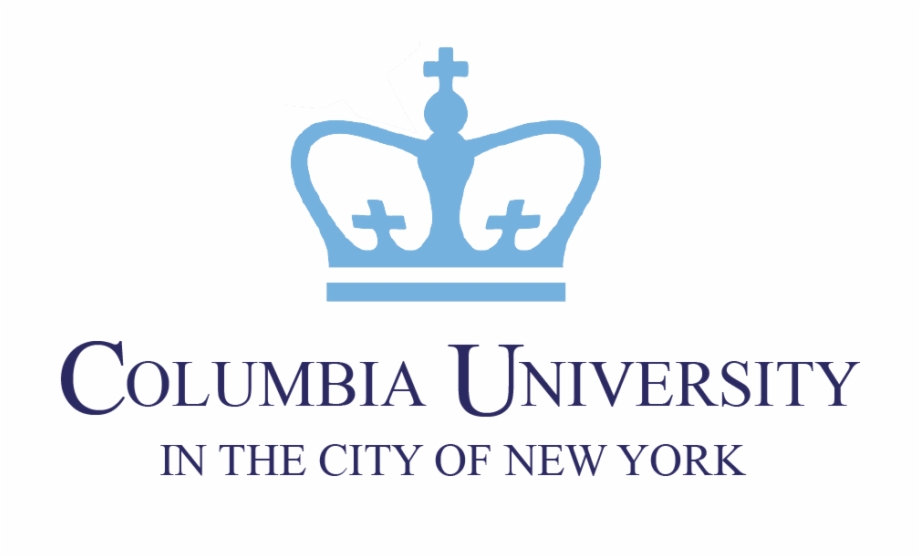
As the fifth oldest university in the United States, Columbia University boasts quite a reputation. The private Ivy League research university is almost always included in rankings of the best schools in the world, and U.S. News & World Report currently ranks Columbia second on its list of the best American universities.
Columbia University’s School of Public Health offers one of the best public health graduate programs in the country. This Master of Public Health comes with six choices of discipline:
- Biostatistics
- Epidemiology
- Population and Family Health
- Environmental Health Sciences
- Health Policy and Management
- Sociomedical Sciences
As an MPH major, you work closely with other students and faculty in their discipline to:
- conduct research
- participate in a practicum
- complete a capstone project
Seven Founding Fathers graduated from Columbia University. More recent alumni have included:
- 100 Nobel laureates
- 29 foreign heads of state
- 122 National Academy of Sciences members
University of North Carolina at Chapel Hill


Our #3 best MPH ranking goes to the University of North Carolina at Chapel Hill. It is the flagship of the University of North Carolina system. The large research university is considered one of the 15 “Public Ivys” – that is, a public university that promises the same quality of education as that of an Ivy League school.
Graduate students may earn Chapel Hill’s Master of Public Health degree on campus, online, or via distance education. However, the customization options don’t stop there, as you may choose to concentrate your MPH on one of 13 different options. The Gillings School of Global Public Health ensures each grad student begins their professional career with the skills and knowledge needed “to solve urgent public health problems in North Carolina and around the world.”
Additionally, Gillings School of Public Health rankings are ranked by U.S. News & World Report every few years. The public health rankings score UNC Gillings in the top three since the graduate school rankings began! Among its alumni, UNC can count:
- nine Nobel Laureates
- a U.S. President
- 38 Governors
The university also has its own hospital, UNC Health Care, which specializes in cancer care.
Johns Hopkins University

Established in 1876, Johns Hopkins is America’s oldest research university. It’s also one of the best. It has been included in rankings of the world’s best universities by U.S. News & World Report, Forbes, and Times Higher Education, among a slew of others.
Among the best public health schools in the world is Johns Hopkins’ Bloomberg School of Public Health. Johns Hopkins’ Bloomberg Schools also serves as the country’s largest public health training facility and the oldest center for epidemiological research.
The School of Public Health offers an 80-credit Master of Public Health degree. You can complete it on campus or online, full-time or part-time. Before graduation, you must complete a 100-hour practicum.
To date, Johns Hopkins has produced nearly 40 Nobel laureates. Its Bloomberg School of Public Health is currently ranked by U.S. News as the best of its kind in the United States.
University of Michigan
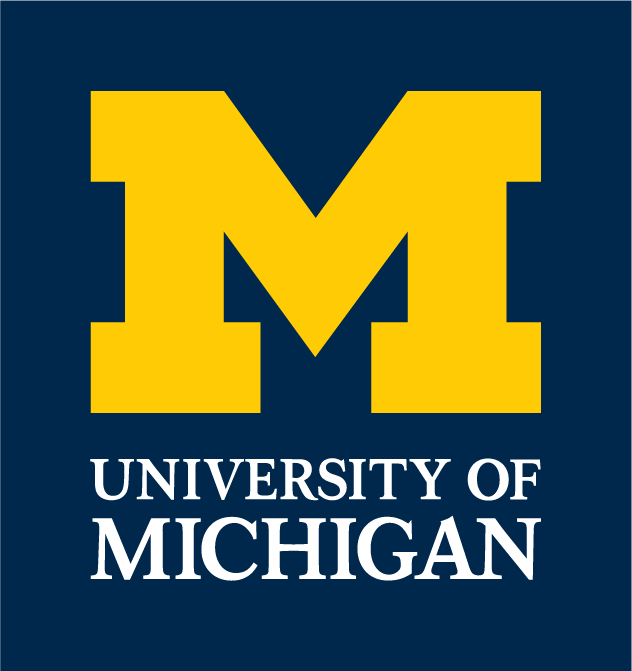
The University of Michigan was one of the first research universities to be established in the United States. It is home to one of the oldest schools of public health, and its list of alumni includes:
- Former Mexican Minister of Health Julio Frenk
- Epidemiologist Larry Brilliant
- Flint Water Crisis whistleblower Mona Hanna-Attisha
University of Michigan’s School of Public Health offers several master’s degree programs. This includes a Master of Public Health, a Master of Science, and a Master of Health Services Administration (MHSA). You may choose to focus your master’s degree on one of nine options or complete a supplemental certificate in a subject such as:
- injury science
- public health genetics
- global public health
Michigan has graduated 26 Nobel Prize laureates and six Turing Award winners. The university is also one of the foremost producers of Fulbright Scholars.
Boston University

Boston University is a private university, classified as an R1 Doctoral University with very high research activity. BU has three Boston University Medical Campuses located throughout the city. The research centers are dedicated to more than 20 disciplines. The School of Public Health is situated on the medical campus in the South End neighborhood of Boston.
BU’s School of Public Health offers a Master of Public Health that has been called a “revolutionary model of public health education.” This top MPH program is available:
- on campus in Boston
- online
- as a hybrid program
If you choose to pursue the degree at a full-time pace, you will be able to graduate in as few as 16 months. All students complete a comprehensive core curriculum before choosing more specialized training and completing a professional internship alongside public health professionals.
Boston University graduates include:
- Eight Nobel laureates
- 10 Rhodes Scholars
- 23 Pulitzer Prize winners
Interestingly, it was in a lab on campus that Boston University professor Alexander Graham Bell invented the telephone in 1876.
University of California – Berkeley

Ranked by U.S. News & World Report as the 22nd best national university, UC Berkeley is the flagship of the prestigious University of California system and holds our #7 best MPH programs ranking.
Berkeley Public Health is separated into seven divisions:
- Biostatistics
- Community health sciences
- Environmental health sciences
- Epidemiology
- Health policy and management
- Infectious diseases and vaccinology
- An interdisciplinary option
Each division offers two or three-degree options, including a Master of Public Health degree. Regardless of division choice, Berkeley School of Public Health majors are given ample opportunity to work with their peers and mentors on research that fits their specific interests.
To date, Berkeley counts among its faculty and alumni:
- 114 Nobel laureates
- 103 MacArthur “Genius Grant”
- 30 Pulitzer Prize winners
Berkeley also ranks as one of the top producers of Fulbright Scholars, MacArthur Fellows, and Marshall Scholars.
University of Minnesota – Twin Cities

University of Minnesota, Twin Cities is the flagship of the University of Minnesota system and the largest university in the state. An R1 Doctoral University, Minnesota spends millions of dollars each year on research in various subjects. The university is also considered a Public Ivy.
Minnesota is home to the School of Public Health, which offers MPH degrees in:
- maternal and child health
- epidemiology
- public health data science
- four other concentrations
Most students choose to complete the degree over the course of two years. You can also complete the degree online. Online and hybrid programs allow for full-time workers to complete their master’s at a more flexible pace. The MPH at Minnesota culminates with an Applied Practice Experience in a real-world setting.
The University of Minnesota is one of the leading producers of:
- Rhodes Scholars (25)
- Marshall Scholars (7)
- Truman Scholars (20)
- Fulbright recipients (127)
Among its alumni, faculty, and researchers can be counted 26 Nobel Prizes.
George Washington University


First chartered in 1821, George Washington University is one of just five universities founded with a Congressional charter. Today, GW is the District of Columbia’s largest institution of higher education. It is classified as an R1 Doctoral University with a high volume of research activity.
GW School of Public Health offers MPS and Master of Science degrees in nearly 30 concentrations, including:
- Global Health Epidemiology and Disease Control
- Humanitarian Health
- Maternal and Child Health
While most of the degrees must be earned on campus in the nation’s capital, some are available entirely online. Thanks to GW’s proximity to D.C., you will have the opportunity to intern with a number of organizations:
- Local
- National
- International Organizations
Perhaps not surprisingly, GW can count among its alumni:
- 28 U.S. Senators
- 27 U.S. Governors
- 18 Cabinet Members
- 16 Foreign Heads of State
University of South Florida
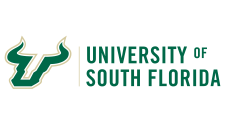
The University of South Florida is a public university with campuses in:
- Tampa
- Sarasota
- St. Petersburg
Like many of the schools on our list of the best public health graduate programs, the University of South Florida is classified as an R1 Doctoral University. More than $560 million has been spent on research and development in recent years.
As a grad student at the University of South Florida School of Public Health, you have the option of pursuing:
- a Master of Public Health
- a Master of Science in Health
- a Master of Health Administration
Those earning an MPH can choose from more than a dozen concentrations including:
- Global Health Practice
- Epidemiology & Global Communicable Disease
- Behavioral Health
The University of South Florida’s long list of distinguished alumni includes:
- Cancer researcher Katherine Seley-Radtke
- Epidemiologist Donna K. Arnett
- Director of Smart Electronic Systems Laboratory Saraju Mohanty
Saint Louis University
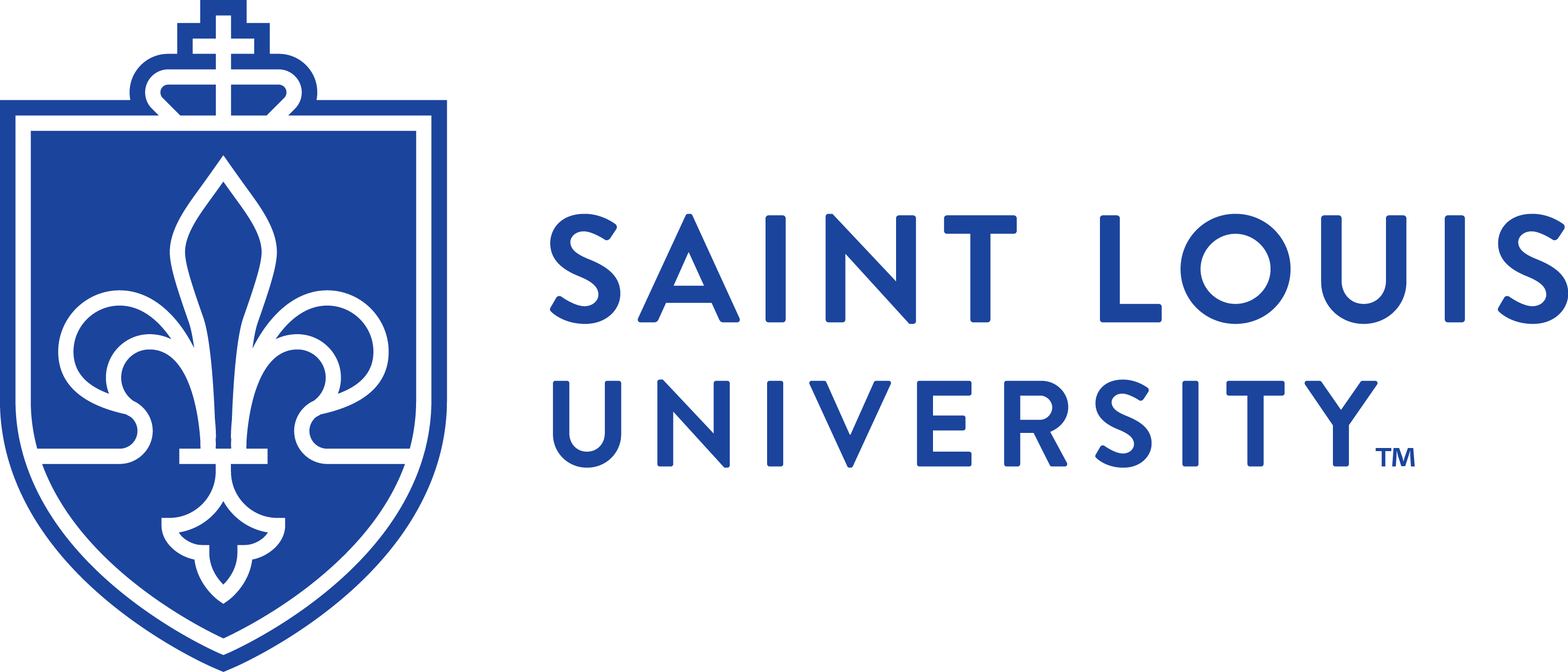
Saint Louis University is the United States’ second-oldest Jesuit university and the oldest university west of the Mississippi. U.S. News & World ranks St. Louis University among the 2019 Best Graduate Schools. More specifically it is No 46 in Public Health and No. 13 in the country for its Master of Health Administration programs.
The university is home to the College for Public Health and Social Justice. This combines the School of Public Health with the School of Social Work and criminology and criminal justice programs. Among our master’s in public rankings, St. Louis University offers the most diverse options.
Graduate students interested in public health have their choice of a Master of Public Health in Public Health Practice or Biosecurity and Disaster Preparedness. The degrees are available either on campus in St. Louis, or as an online program. You may also choose to earn a dual MPH and:
- J.D.
- M.D.
- M.S.
- M.M.S.
- M.S.W.
University of Maryland – College Park

The University of Maryland is a large public university. It is the flagship of the University of Maryland system. It is an R1 Doctoral University within close proximity to Washington, D.C. Maryland frequently partners with the National Institutes of Health, the Food and Drug Administration, and other federal agencies for research and development.
The MPH students at Maryland work through 14 core courses before continuing classes in their chosen concentration. Nine concentration options are offered, including:
- Health Equity
- Physical Activity
- Health Care Management
The school of public health degree program culminates in an internship and a capstone project. If you work full-time, or do not live near campus, you may also complete this MPH online.
The University of Maryland is Public Ivy. Its long list of distinguished alumni includes:
- Nobel laureates Raymond Davis Jr. (physics) and Herbert Hauptman (chemistry)
- The “father of linear programming” George Dantzig
- The current curator of birds at the Smithsonian’s National Zoo, Sara Hallager
University of Iowa
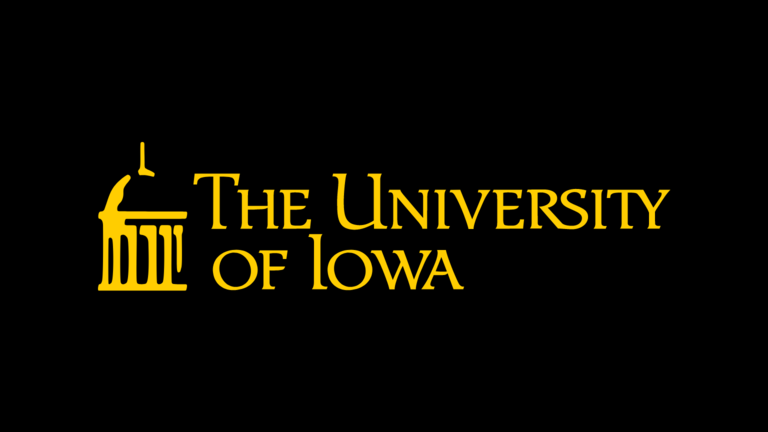
University of Iowa is the state’s oldest university. It is an R1 Doctoral University with very high research activity. Though it offers more than 200 areas of study, Iowa is especially well known for its best programs in public health care.
Iowa offers graduate students five concentration options for their Master of Public Health degree:
- Biostatistics
- Community and Behavioral Health
- Environmental Health Sciences
- Epidemiology
- Health Policy
Regardless of your concentration choice, the best MPH degree program through the School of Public Health prepares you for a career in public health through coursework and a 200-hour practicum project.
Among University of Iowa’s most distinguished alumni are:
- Pioneer Space Scientist James Van Allen
- National Institutes of Health neuroscientist Mark Mattson
- Actor Ashton Kutcher
University of California – Los Angeles

Like Berkeley, UCLA is a member of the University of California system. The university is home to the Jonathan and Karin Fielding School of Public Health. It enrolls nearly 700 students from 30 countries. The school specializes in global health and environmental health. It boasts 19 Memoranda of Understanding including in:
- Cambodia
- Germany
- Mexico
- Congo
As a Master of Public Health at UCLA major, you may choose between five departments:
- Biostatistics
- Epidemiology
- Community Health Sciences
- Environmental Health Sciences
- Health Policy and Management
In addition to coursework, you are required to complete an internship that combines your classroom knowledge with the real world. Most students complete their entire MPH in two years. Some grad students may be eligible for a faster, accelerated option.
Eleven of UCLA’s current faculty members have been elected to the prestigious National Academy of Science’s Institute of Medicine. Notable faculty members include:
- “Modern Epidemiology” author Sander Greenland
- Bestselling alternative healthcare author Michael Goldstein
- Internationally recognized health systems researcher Milton Roemer
University of Washington

The University of Washington is a public research university and an R1 Doctoral University with very high research activity. It is especially well known for its medical research, though its research budget across all subjects consistently ranks amongst the highest in the country.
Washington offers a master of public health degree in six areas:
- Epidemiology
- Global Health
- Health Systems and Population Health
- Environmental and Occupational Health Sciences
- Nutritional Sciences
- Public Health Genetics
Regardless of your focus, you will complete a core curriculum of courses such as Analytic Skills for Public Health and Foundations of Public Health. The master’s degree program at the School of Public Health culminates in a real-world practicum.
University of Washington’s long list of notable alumni includes:
- Nobel Prize-winning Biologist Linda B. Buck
- Pulitzer Prize-winning Author Marilynne Robinson
- Glass Artist Dale Chihuly
Drexel University

Drexel University is a large private university with one of the best public health master’s programs out there. Drexel is one of the “Top 100 Worldwide Universities” for granting U.S. utility patents, as named by the National Academy of Inventors and the Intellectual Property Owners Association.
Drexel offers a Master of Public Health degree via its Dornsife School of Public Health. The flexible program allows you to earn your MPH on campus and focus on one of the following:
- Community and Health Prevention
- Environmental and Occupational Health
- Health Management and Policy
- Epidemiology
If you pursue this MPH program online, you can focus on any of the following:
- Epidemiology
- Global Health
- Urban Health
From the very first class, you are immersed in real-world public health experiences ranging from cutting-edge research to a professional internship.
Drexel is home to five different research centers related to public health including:
- the Autism Public Health Research Institute
- the Center for Public Health Practice
- the National Resource Center on Advancing Emergency Preparedness
University of Pittsburgh

University of Pittsburgh, or Pitt as it’s so well known, is a public research university and an R1 Doctoral University. Pitt is especially well known for its medical programs, and in recent years has been one of the foremost recipients of federally sponsored health research funding.
Via its Graduate School of Public Health, Pitt offers Master of Public Health degrees in seven different concentrations including:
- Health Policy and Management
- Human Genetics
- two relating to infectious diseases
Students in the school of public health may also complete additional coursework to earn valuable certificates:
- Health Systems Leadership
- LGBT Health and Wellness
- Health Equity
- Global Health
Each MPH degree culminates in a professional internship.
University of Pittsburgh is a leading producer of:
- Fulbright Scholars (297)
- Marshall Scholars (10)
- Rhodes Scholars (8)
Among the university’s many distinguished faculty and alumni are six Nobel laureates and various members of the American Academy of Arts and Sciences.
University of Southern California

As California’s oldest private research university, University of Southern California enjoys quite a prestigious reputation.
USC’s Master of Public Health degree is offered via the top-ranked Department of Population and Public Health Sciences. Four concentrations are offered on campus and online:
- Biostatistics-Epidemiology
- Community Health Promotion
- Global Health
- Health Services and Policy
Regardless of your chosen concentration, you will complete a rigorous curriculum that culminates in a professional internship.
USC’s health sciences campus is located in the nearby city of Alhambra. This campus is home to:
- USC’s Masters in Public Health Program
- The Primary Care Physician Assistant Program
- The Institute for Health Promotion and Disease Prevention Research
University of California – Davis

UC Davis is the third University of California school to make our ranking of the best MPH degrees. However, Davis is best known for its veterinary program. Its medicine and public health programs have grown into large and respectable programs over recent decades.
In fact, Davis is home to the UC Davis Medical Center, which consistently ranks among the country’s best hospitals for both adult and pediatric medical specialties.
From day one, graduate students earning their MPH from UC Davis work alongside the public health community. This unique 56-credit degree MPH program is accelerated and allows you to begin your career in just 10-12 months! You can choose between two concentration options: epidemiology or general public health. Both culminate in an internship or practicum experience.
UC Davis is a Public Ivy university. It is also an R1 Doctoral University, with 14 faculty members of the Institute of Medicine. Included on Davis’s long list of accomplished alumni are two Nobel laureates and a National Medal of Science recipient.
Baylor University

Established in 1845, Baylor University is Texas’s oldest continuously operating university. Baylor is well known for its programs in medicine and public health and houses one of our best MPH programs.
Baylor University offers a Master of Public Health in:
- Community Health
- Environmental Health Science
- Epidemiology
As an MPH major at Baylor, you will enjoy the following:
- global health opportunities
- low faculty-student ratios
- hands-on learning opportunities
Not only does U.S. News & World Report consistently rank Baylor University among the top 100 national universities, but in 2021 it also declared Baylor the 25th “most innovative” school in the country.
Our best MPH rankings include programs that are worth the time, energy, and money you invest.
Frequently Asked Questions
Those who earn a master’s in public health (MPH) are equipped with the knowledge and practice needed to improve the health of local, state-wide, and nationwide populations. A master’s degree generally takes two years and combines rigorous classwork, internships, and capstone projects.
Typically, students earning an MPH degree choose to focus on five particular parts of public health:
Epidemiology
Biostatistics
Environmental Health
Health Policy
Administration
Someone with a Master of Public Health in epidemiology might be an epidemiologist. Someone with a Master of Public Health in Health Care Services might be a:
• healthcare specialist
• public health nurse
• health services administrator
• nutritionist
• environmental health office
• health educator
• medical director
According to the U.S. Bureau of Labor Statistics, general healthcare occupations are expected to increase 16% between now and 2030. This is a much faster rate than other fields. Meanwhile, jobs for community health workers and epidemiologists are expected to grow by 17% and 30%, respectively.
Another point: since healthcare will always be an essential field, healthcare professionals will always be needed.
Yes! An MPH degree is worth the time, cost, and energy because of the job opportunities and hefty salary potential. Even better, with an MPH, you will have a voice in the healthcare field and have a greater impact on improving others’ lives.
A master’s in public health equips you to address health issues on a larger scale, making it valuable for those passionate about improving community well-being. With diverse career paths in public health agencies, nonprofits, and healthcare organizations, it offers opportunities to make meaningful contributions to society.
A master’s degree in public health typically takes about two years to complete, although some programs may offer accelerated options. The coursework covers various aspects of public health, including epidemiology, biostatistics, health policy, and environmental health.
Yes, MPH (Master of Public Health) is considered a professional degree, preparing students for careers in public health practice, policy, and administration. It focuses on developing practical skills and knowledge to address public health challenges at local, national, and global levels.
